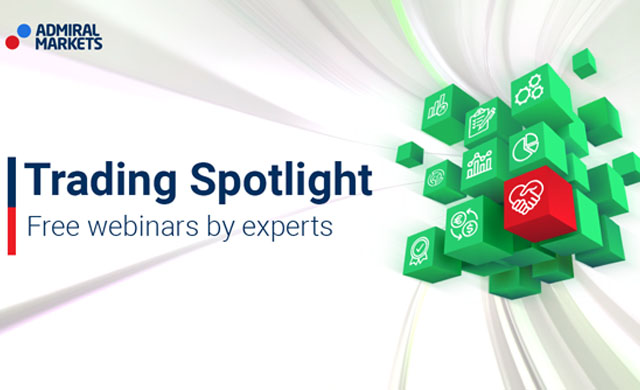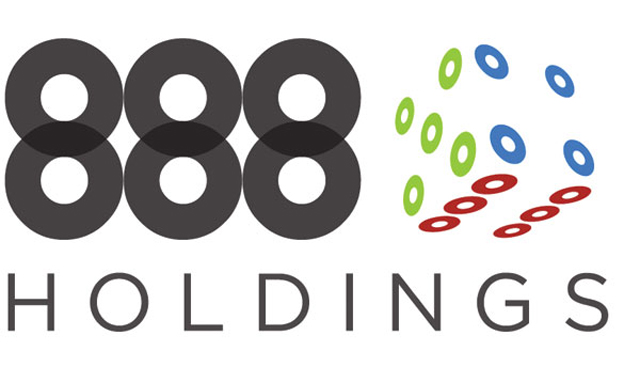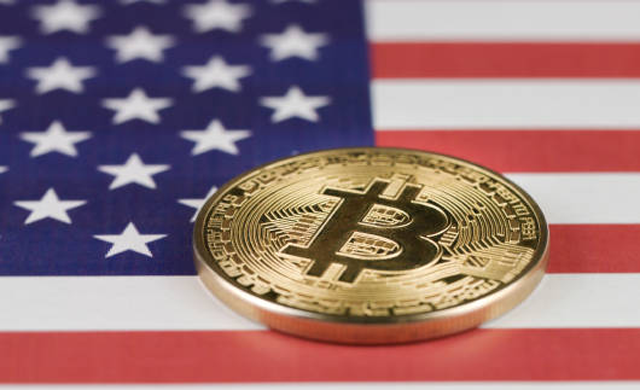What would you say if you could skip the learning curve that comes with learning how to trade? What if you could go from zero to having 10 years of trading experience overnight?

While we can’t promise an overnight transformation, what we can do is speak to experienced traders who have already achieved success, and find out their top advice for new traders.
For this article, we interviewed three trading experts – Jens Klatt, Paul Wallace and Markus Gabel.
Jens Klatt is a professional analyst and trader who has been trading the global markets for over 10 years. He is the author of two bestselling books and is regularly featured on television and in the German media for his market outlooks.
Paul Wallce is a professional financial trader with more than 27 years’ experience working in competitive, results-driven, performance environments. He runs the trader evolution practice, Tradingbeliefs , which helps traders manage and improve their overall performance.
Finally, Markus Gabel has been working in the financial sector since 2000 as a trainer and analyst. He has also been a trader with the asset management firm Born Stahlberg & Partner for five years, and manages his own trading and education service called DowHow Trading.
Where did they start? Did they have a background in finance?
Interestingly, only one of our three traders had a background in finance!
Jens went straight from school into a traineeship at a bank, which prompted him to build a career in investment banking and wealth management, and the jump from there to trading was fairly small.
Paul and Markus on the other hand, started their careers in completely different fields – Paul was a Battle Manager in the British Air Force, while Markus originally trained as a baker when he was sixteen!
When we asked Paul how he transitioned into trading, he mentioned that a bank in the City of London was trying to recruit Battle Managers and Air Traffic Controllers, as there were a lot of similar skill sets. This led him to join the internet and telecommunications industry during the late-90s dot-com boom, and boredom in his day-job led to him starting to buy and sell shares in internet companies.
I wasn’t a great trader – I was just a lucky punter who happened to be in the right time, at the right place with knowledge of the right industry and a key appreciation for risk management from my days as a Battle Manager. I think the military gives you an in-built understanding of risk management – when to push a position, and when to run away bravely.
For Markus, unfortunately, baking didn’t pay him well enough to survive, and he started looking for another career path.
When I was around 20 years old I started a new path by getting educated as a financial adviser. Money was always an interesting topic for me, and I thought I could become good at talking to people about money and to help them manage their finances in a better way. The jump from that kind of job to trading was then a very short one.
Were they successful from the beginning?
With his military background, Paul took a conservative approach and used firm risk management rules from the beginning. Jens and Markus, however, experienced many of the ups and downs that are common to new traders.
Jens failed miserably when he first tried CFD trading:
I remember one day when I had a good day for my employer, and several guys (including my senior trader) were patting me on the back, and I was still just a student. I thought: “You’re the man!”
It was a Wednesday and Crude Oil Inventories were about to be published. I had never traded Crude Oil in my personal account before, but I thought, “You’ve had a great day, and you’re about to enter trader’s heaven,” and I took a far too big long position in expectation of a rising oil price – and got caught on the wrong foot.
I lost nearly 20% of my account within seconds. I was completely paralysed and sick to my stomach, thinking: “My career as a trader is over.”
Meanwhile, Markus found that trading quickly consumed his life, and affected both his personal life and his finances:
When I started trading I made some money and I felt great – like the king of the world. But I made the big mistake of starting my trading journey with real money (not a demo account) so I was a very emotional trader. When, after a couple of winners, I lost more money than I had made, I didn’t understand why. Because it was real money, I was emotionally attached to the loss and I tried to make it back as quickly as possible.
So I increased the risk, switched the timeframes and by the end I was trading on 1-minute charts during my day job. I won, and then I lost, and ultimately I lost more than I won.
Before long, I was addicted to trading. I tried to get back my money in every single minute of every single day – soon, I had no more time for my wife, family or friends. I even started getting up in the middle of the night to check my positions. I was on an emotional roller coaster – I was happy when I won but I was very angry when I lost. It was a terrible time, and I felt like I couldn’t change anything because I needed to get back the money I’d lost.
What were the mistakes they made?
When we asked about the mistakes they made, and the lessons they learnt as a result, both Jens and Paul spoke about the importance of risk management and diversifying their portfolios.
Markus spoke about his unrealistic expectations:
My biggest mistake was that I thought I could make a lot of money very quickly and to do it without any education or experience. It looked so easy. If you see a green candle, go long and if you see a red candle, go short. Or follow some advisers on the internet or TV. I also thought there must be a Holy Grail for making money, and I did everything to figure out what I would have to do to make money every time and with every trade.
Once I made a trade and realised too late that I was trading against the trend, but I wasn’t able to close the trade because I was very convinced that the theory must work. But it didn’t, and my broker closed my trade with more than a 25% loss of my account balance.
How did they turn things around?
For Markus, education was the key to turning things around.
I decided to stop actively trading for a while and instead began to educate myself. For three months I read books, watched webinars and tried to find a coach. Fortunately I found one of the best coaches ever and over the next three years I learnt how to trade successfully.
If someone had told me how hard this journey would be, I am sure I had never started trading. But in retrospect I am very happy that I had the power to take this path. And on that way I found my purpose – to help traders avoid the same mistakes and achieve success faster.
Both Jens and Paul agreed that risk management from Day 1 was essential. Paul also said that it’s important to be aware of how traders define ‘success’ in trading:
Most people define it by the outcome of the trade and a growing profit in their account. But in reality you’re still learning to trade and so your definition of success should be: Plan your trade. Trade your plan. Manage your risk. If you do those three things, then the trade is a success regardless of the outcome of the trade.
What are their top tips for new traders?
Of course now that Jens, Markus and Paul have been trading successfully for years, we asked them about their top advice for new traders.
- Ask whether you really want to be a trader
Traders have to be honest with themselves about whether they really want to trade. If their only motivation is to make money, it is nearly impossible to be successful in trading in the long run.
According to Jens:
No money in the world will overcome the pain of losing money in a trade or the loneliness you will naturally face by sitting in front of your screen day in, day out.
Instead, you should love the challenge of trading. I really love the intellectual aspect and the knowledge that I compete with others. Knowing that 90% and more of retail traders fail and the knowledge that, if I make it, leaves me being better than more than 90% of the people is really motivating for me.
At the end of the day, I think it’s not about the money.
- Treat trading like a real job
It’s important to treat trading like a new job – like any new job, it needs to be learnt, and traders need to learn how the market works, how to manage their software, and how to manage their trades.
As Markus said:
No one expects to become a lawyer, a doctor or a flight captain by watching a webinar, reading a book or visiting a seminar. Everybody knows that it takes a lot of effort, time and money to learn such jobs, or even normal jobs.
But in trading we think it works differently and we can learn it very fast and we get rich quickly. But that doesn’t work. To make money in the markets takes time, patience and personal development. If you are willing to do that, you are able to make money on a long run.
- Manage risk from Day 1
All three traders said that risk management was essential to achieving long-term success in trading, and recommended that traders incorporate risk management into trading strategies and money management from the beginning.
As Jens said:
Risk management is crucial for long-term success in trading. While trading at the stockbroker, a risk manager or my senior trader took usually care of the risks I had on my book and reminded me to scale my position down if I got too big.
Most new traders think they need to trade really large amounts to make it in trading, and there’s often an attitude of “You’re not a real man if you trade small.”
I think this is a really bad mistake – you need to overcome this, especially if the money starts to affect you from a mental perspective. If you do not feel comfortable in a trade and are more focused on the money you are going to make or the money you are going to lose, you are obviously trading too big and need to get smaller.
Want to learn more from Jens, Markus and Paul? Then register for Admiral Markets Trading Spotlight webinars here.
Disclaimer: The opinions expressed herein are those of the interviewable and do not necessarily reflect the views of Admiral Markets investment firms.
Trading with financial instruments (CFDs, Stocks, ETFs) offered by Admiral Markets carries a high level of risk which is not suitable for all investors due to their complex nature. Before entering into client agreement or making a transaction, please make sure to read the terms and conditions of our service. Consult a specialist if necessary to ensure you understand the risks involved in trading.
CFDs are complex instruments and come with a high risk of losing money rapidly due to leverage. 84% of retail investor accounts lose money when trading CFDs with this provider. You should consider whether you understand how CFDs work and whether you can afford to take the high risk of losing your money.


 Hot Features
Hot Features














